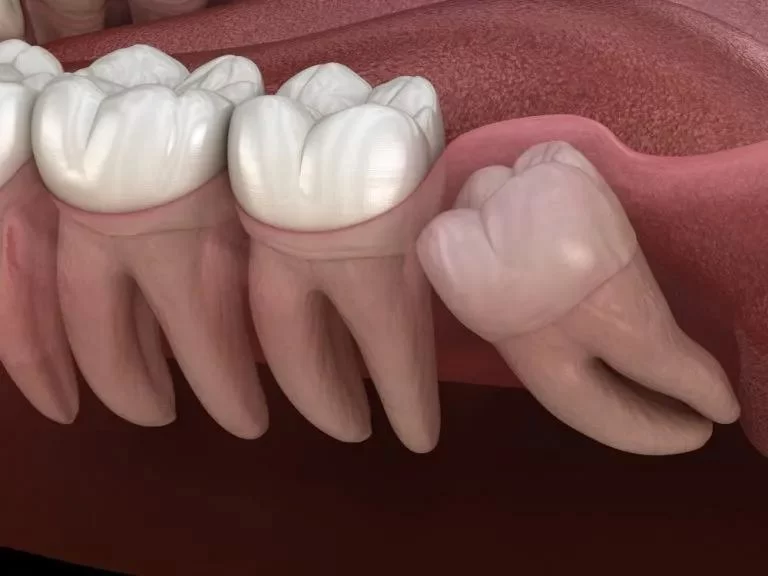
Wisdom Teeth Extraction: What You Need to Know for a Smooth Recovery
- What Are Wisdom Teeth?
- Why Do You Need to Remove Wisdom Teeth?
- The Extraction Process
- Post-Extraction Care and Recovery
- Managing Pain After Surgery
- When to Seek Medical Help
What Are Wisdom Teeth?
Wisdom teeth, also known as third molars, are the last set of teeth at the back of your mouth. These teeth typically emerge in your late teens or early twenties. While some people have no problems with them, others may experience issues due to overcrowding or misalignment. These problems often lead to the need for removal.
Why Do You Need to Remove Wisdom Teeth?
There are several reasons why wisdom teeth may need to be extracted. These include:
- Impacted Teeth: When wisdom teeth don’t have enough space to emerge properly, they can become impacted, causing pain, swelling, and infection.
- Overcrowding: If there isn't enough space in your mouth, wisdom teeth can push other teeth out of alignment.
- Infections and Cavities: If wisdom teeth are partially erupted, they can be difficult to clean, leading to infections and cavities.
The Extraction Process
Wisdom teeth extraction is a common procedure that is usually performed by a dentist or oral surgeon. Before the procedure, your dentist will examine your teeth and take X-rays to determine the positioning of the wisdom teeth. Based on the complexity, you may be given local anesthesia, sedation, or general anesthesia. The surgeon will make an incision in the gum to remove the tooth, and in some cases, may need to break the tooth into smaller pieces to facilitate removal.
Post-Extraction Care and Recovery
After your wisdom teeth are extracted, proper care is essential to ensure a smooth recovery and avoid complications such as infections or dry socket. Here are some tips to help with your recovery:
- Rest: Take it easy for the first few days to allow your body to heal.
- Ice Packs: Apply ice to your face to reduce swelling during the first 24 hours.
- Follow Instructions: Stick to the aftercare instructions provided by your dentist or surgeon to prevent complications.
Managing Pain After Surgery
It's normal to experience some discomfort after the procedure, but managing pain is key to a smooth recovery. Your dentist will likely prescribe pain medication or recommend over-the-counter options. You can also manage pain with cold compresses and by avoiding hard or chewy foods for a few days.
When to Seek Medical Help
If you experience severe pain, prolonged bleeding, or signs of infection such as fever or pus, it’s important to contact your dentist or oral surgeon immediately. These could be signs of complications that require medical intervention.
In conclusion, wisdom teeth extraction is a routine procedure that can significantly improve your oral health. Whether you're having a single tooth removed or all four, understanding the process and following proper aftercare can help you recover smoothly. If you're experiencing pain or discomfort from your wisdom teeth, don't hesitate to consult with a dentist or oral surgeon to determine if extraction is the right choice for you.
Considering wisdom teeth removal? Contact your dental provider today for a consultation and get back to living pain-free!







 M Street Dentistry3.0 (7 review)
M Street Dentistry3.0 (7 review) Worthington Pediatric Dentists3.0 (162 review)
Worthington Pediatric Dentists3.0 (162 review) Kennedy Dental Office4.0 (30 review)
Kennedy Dental Office4.0 (30 review) Henrico Dental: Dr. Sujit Mohanty4.0 (42 review)
Henrico Dental: Dr. Sujit Mohanty4.0 (42 review) Stephen F Selden DDS LTD4.0 (10 review)
Stephen F Selden DDS LTD4.0 (10 review) HealthPartners Dental Clinic Woodbury2.0 (24 review)
HealthPartners Dental Clinic Woodbury2.0 (24 review) The Importance of Oral Health Education During Pregnancy for a Healthy Pregnancy
The Importance of Oral Health Education During Pregnancy for a Healthy Pregnancy Best Tips for Brushing Your Teeth Properly for Healthy Gums: Essential Techniques for Oral Health
Best Tips for Brushing Your Teeth Properly for Healthy Gums: Essential Techniques for Oral Health Why Skipping Dental Checkups Can Lead to Bigger Oral Health Problems
Why Skipping Dental Checkups Can Lead to Bigger Oral Health Problems Advantages of Porcelain Dental Restorations
Advantages of Porcelain Dental Restorations How Can Diabetes Cause Tooth and Gum Problems? Preventing and Managing Oral Health Issues
How Can Diabetes Cause Tooth and Gum Problems? Preventing and Managing Oral Health Issues Healthy Habits for Promoting Good Oral Health and Hygiene: Tips for a Healthy Smile
Healthy Habits for Promoting Good Oral Health and Hygiene: Tips for a Healthy Smile